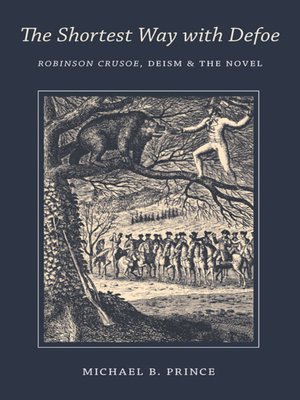
Sign up to save your library
With an OverDrive account, you can save your favorite libraries for at-a-glance information about availability. Find out more about OverDrive accounts.
Find this title in Libby, the library reading app by OverDrive.



Search for a digital library with this title
Title found at these libraries:
| Library Name | Distance |
|---|---|
| Loading... |
A scholarly and imaginative reconstruction of the voyage Daniel Defoe took from the pillory to literary immortality, The Shortest Way with Defoe contends that Robinson Crusoe contains a secret satire, written against one person, that has gone undetected for 300 years. By locating Defoe's nemesis and discovering what he represented and how Defoe fought him, Michael Prince's book opens the way to a new account of Defoe's emergence as a novelist.
The book begins with Defoe's conviction for seditious libel for penning a pamphlet called The Shortest Way with the Dissenters (1702). A question of biography segues into questions of theology and intellectual history and of formal analysis; these questions in turn require close attention to the early reception of Defoe's works, especially by those who hated or suspected him. Prince aims to recover the way of reading Defoe that his enemies considered accurate. Thus, the book rethinks the positions represented in Defoe's ambiguous alternation and mimicking of narrative and editorial voices in his tracts, proto-novels, and novels.
By examining Defoe's early publications alongside Robinson Crusoe, Prince shows that Defoe traveled through nonrealist, nonhistorical genres on the way to discovering the form of prose fiction we now call the novel. Moreover, a climate (or figure) of extreme religious intolerance and political persecution required Defoe always to seek refuge in literary disguise. And, religious convictions aside, Defoe's practice as a writer found him inhabiting forms known for their covert deism.







